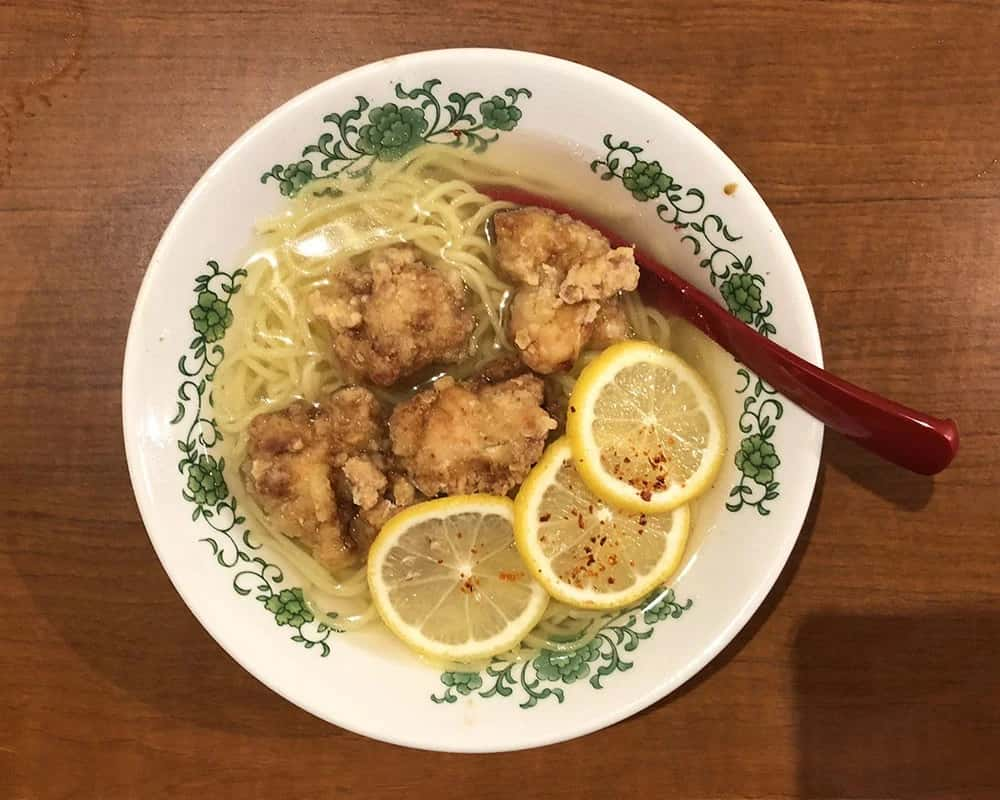For the longest time, I've been known as the girl who enjoys salty food a bit too much. Sour cream pringles, salted chocolate chip cookies, and salty fries - I can't get enough of it. If you love salt as much as I do, you should check out this ramen place in Chiba that's located in the Greater Tokyo Area.
Just a 1-minute walk from Kaihimmakuhari station, walk towards the South Exit to reach Plena Makuhari, the shopping mall where Ramentei Yoshino Makuhari is located. We arrived around lunchtime when this small, cosy ramen place is packed with Japanese salarymen.
Finding halal food in Chiba is not easy, so the owner of Ramentei Yoshino Makuhari worked really hard to add 2 halal-certified ramen in the menu. Priced at ¥700 (RM27) per bowl, you can choose between Yoshino Original Ramen and Salty Fresh Ramen - and there's no guessing which one I ordered.
Everyone in my lunch group chose Yoshino Original Ramen. Looking at the photo alone is enough to entice you to do the same. It's basically a shoyu-based ramen served with chicken kaarage, beansprouts and crispy seaweed. It's also comes with homemade Chiba-style sambal that's not too spicy.
Yes, you've guessed it right! I went with Salty Fresh Ramen, which is a salt-based broth topped with zesty lemon slices and chicken karaage. It was my first time trying salt-based ramen, and I was surprised by how the lemon slices balanced out the flavours and made it less salty. The owner also uses miso paste to give the broth a rich flavour and it complements the springy noodles so well. I even finished it till the last drop!
While salt-based ramen may not be for everyone, it is definitely for me. If I were to return to Ramentei Yoshino Makuhari someday, I would give their original soy sauce-based ramen a try. Fingers crossed that it'll be salty too (in a delicious way)!
Rating: 6/10
Halal status: The restaurant only serves 2 halal-certified ramen that uses ingredients and meats from halal-certified suppliers. While the restaurant also serves pork dishes and alcohol, both ramens are prepared separately in the kitchen, but using the same utensils as non-halal meals.


